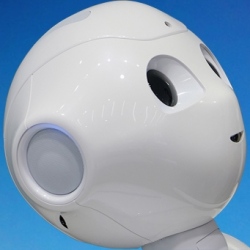
Stuart Russell, a leading AI researcher suggests that superhuman AI would be "the biggest event in human history". Stephen Hawking says that "when it eventually does occur, it’s likely to be either the best or worst thing ever to happen to humanity, so there’s huge value in getting it right."
Now, thanks to an unprecedented £10 million grant from the Leverhulme Trust, the University of Cambridge is to establish a new interdisciplinary research centre, the Leverhulme Centre for the Future of Intelligence, to explore the opportunities and challenges of this potentially epoch-making technological development, both short and long term.
Huw Price, the Bertrand Russell Professor of Philosophy at Cambridge and Director of the Centre, said: "Machine intelligence will be one of the defining themes of our century, and the challenges of ensuring that we make good use of its opportunities are ones we all face together. At present, however, we have barely begun to consider its ramifications, good or bad".
The Leverhulme Centre for the Future of Intelligence spans institutions, as well as disciplines. It is a collaboration led by the University of Cambridge with links to the Oxford Martin School at the University of Oxford, Imperial College London, and the University of California, Berkeley.
It is supported by Cambridge’s Centre for Research in the Arts, Social Sciences and Humanities (CRASSH). As Professor Price put it, "a proposal this ambitious, combining some of the best minds across four universities and many disciplines, could not have been achieved without CRASSH’s vision and expertise."
Zoubin Ghahramani, Deputy Director, Professor of Information Engineering and a Fellow of St John’s College, Cambridge, said: "The field of machine learning continues to advance at a tremendous pace, and machines can now achieve near-human abilities at many cognitive tasks, from recognising images to translating between languages and driving cars.
We need to understand where this is all leading, and ensure that research in machine intelligence continues to benefit humanity. The Leverhulme Centre for the Future of Intelligence will bring together researchers from a number of disciplines, from philosophers to social scientists, cognitive scientists and computer scientists, to help guide the future of this technology and study its implications."
The Centre aims to lead the global conversation about the opportunities and challenges to humanity that lie ahead in the future of AI. Professor Price said: "With far-sighted alumni such as Charles Babbage, Alan Turing, and Margaret Boden, Cambridge has an enviable record of leadership in this field, and I am delighted that it will be home to the new Leverhulme Centre."
